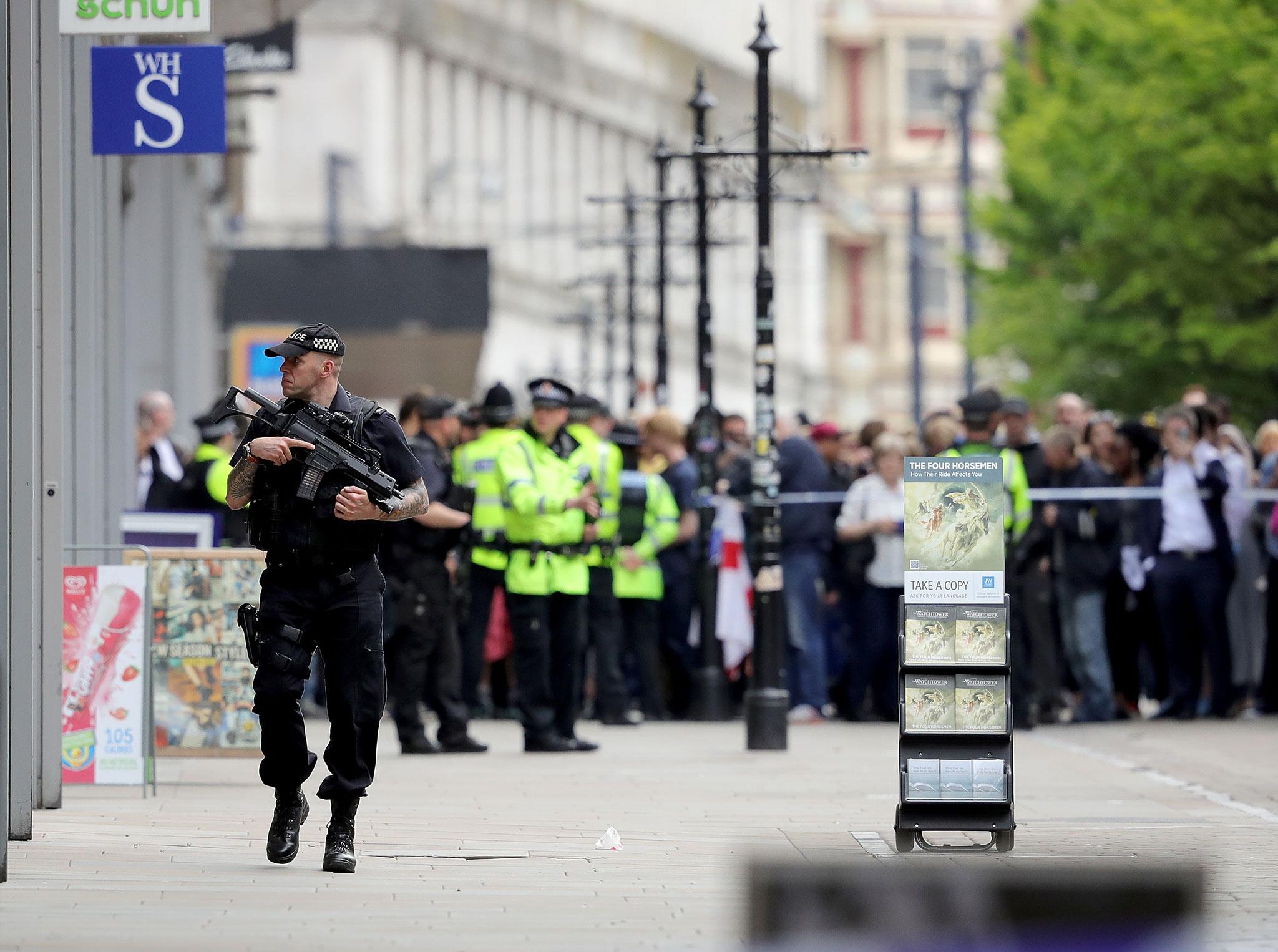Isis want us to implement more anti-extremism laws – that's the bigger plan
In the al-Qaeda manual which has shaped the strategy of modern jihadism more than any other single document, and has since been adopted by Isis, the author sets out a long-term plan to build an Islamist caliphate

The solidarity Manchester demonstrated in the aftermath of the deadliest attack to hit Britain since 7/7 was reassuring: taxi drivers provided free rides and bus drivers took after hour shifts. With #roomformanchester trending on social media, thousands of residents offered spare bedrooms to survivors and their families. It was this courage to mobilise in the face of complete chaos that sent a powerful signal of unity against the dividing forces of terrorism.
But the attack has also sparked waves of anger across the country; and understandably so: the deliberate choice of the softest of targets – innocent children and teenagers enjoying a pop concert – underlines both the cold-bloodedness and the cowardice of the self-styled martyr.
With the memories of the Westminster attack still vivid, frustration with the institutional powerlessness against these forms of terrorism is rising. While Manchester’s security forces demonstrated a swift and professional reaction to the incident, self-starter or small cell plots are notoriously difficult to intercept.
As a result of this frustration, many people tire of politicians and counter-extremism experts urging the public to remain calm and united. There is a déjà-vu effect that makes it hard to believe in these calls, which seem to offer little reassurance.
Since Isis claimed the attack and supporters celebrated its terrible consequences on social media as an act of martyrdom committed in the name of Islam, calls for Islam to be banned and for Muslims to be deported were amplified on social media. The incident risks to add to widespread fear of and rage against religious and ethnic minorities, mirroring the after-effects provoked exactly four years ago. When Lee Rigby was murdered in a brutal act of Islamist terrorism, anti-Muslim hate crimes spiked and drove more alienated Muslims into the open arms of Islamist extremists.
In the al-Qaeda manual, Management of Savagery, which has shaped the strategy of modern jihadism more than any other single document and has since been adopted by Isis, the author sets out a long-term plan to build an Islamist caliphate.
This playbook suggests a campaign of tactical, seemingly random, terrorist attacks across the globe, intended to provoke states. The reactions jihadists desire are rushed military responses and heavy-handed domestic security measures, designed to exhaust states, and alienate Muslim populations, thereby weakening their enemy and creating a vulnerable audience from which they can recruit. It also intends to provoke societies to turn on Muslims in their communities, spark anti-Muslim hatred, hamper integration, and prompt chaos. This too, is designed to increase the sorts of grievances and identity crises that extremists can then exploit with their radicalisation efforts.

The attack last night in Manchester should be seen with this strategy in mind. Just like other bomb attacks at the Bataclan theatre, outside the Stade de France, at the Pulse nightclub in Orlando, or as far back as the Bali bombings in 2002, the aim is mass casualty attacks, so shocking that it prompts endless media coverage and fame for the perpetrators, but also necessarily a response from the states and societies who suffer. Terrorism is propaganda. Extremists use fear to instil panic. This provokes knee-jerk responses, and even if they are well-managed States of Emergency, with resilient messages of reassurance coming from Prime Ministers, or solidarity campaigns launched by Muslim communities and counter-extremism activists, there will be some who respond with hate, and some measures that miss the mark.
Donald Trump is right to call the perpetrators ‘evil losers’: terrorism is usually an act of desperation that signifies that the perpetrators are aware of their weak position. However, the perpetrator will only remain a loser if we do not let him achieve his ultimate goal: breaking our society apart.
Strategically, turning our anger into constructive work against extremism will be the only way out of the vicious circle of fear and anger that fuels extremism. The strongest prophylaxis of radicalisation is community cohesion, the best medicine against terrorism is societal resilience. The best inoculation to this cancerous barbarism is proactive prevention with all sectors of society doing their duty to spot the signs of radicalisation and prevent individuals going down pathways to terror.
Responding to terrorism with illiberal or inhumane reactions will not just undermine the very principles we try to defend in the face of Islamist extremism, but will also be counter-productive. This is a global jihadist insurgency, and in asymmetric warfare, the stronger party is doomed to fail if it plays by the rules the weaker party imposes. Terrorists tend to have nothing to lose and all to gain, while we have little to gain and everything to lose: social stability, inter-community solidarity, democracy and peace.
Jonathan Russell is the executive director and Julia Ebner is a senior researcher at the Quilliam Foundation
Join our commenting forum
Join thought-provoking conversations, follow other Independent readers and see their replies
Comments
Bookmark popover
Removed from bookmarks